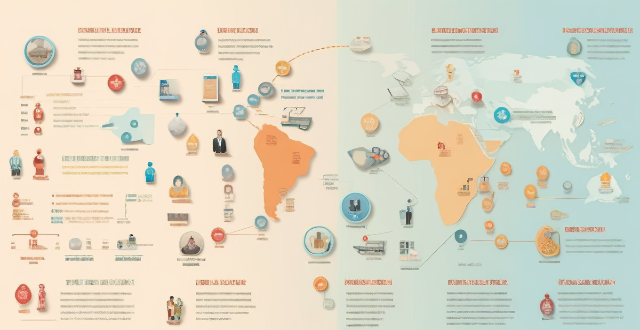Global collaboration faces political, economic, cultural, and logistical challenges. Politically, differing national interests, sovereignty concerns, and leadership dynamics can impede progress. Economically, fair resource allocation, trade agreements, and sanctions are contentious issues. Culturally, language barriers, diverse values, and educational gaps pose challenges. Logistically, coordination across time zones, travel restrictions, and technology disparities complicate matters. Addressing these challenges with open dialogue and cooperation is key to achieving shared global goals.

Challenges in Global Collaboration
Working together on a global scale presents numerous challenges for countries. These challenges can be broadly categorized into political, economic, cultural, and logistical factors. Let's delve into each of these categories to understand the complexities involved in international cooperation.
Political Challenges
Differing National Interests
- Countries often have conflicting interests, which can hinder collaborative efforts.
- Diplomatic tensions and historical animosities may impede progress.
Sovereignty and Intervention
- Issues of sovereignty can arise when one nation feels its autonomy is threatened by international intervention.
- The balance between respecting national sovereignty and intervening for the greater good is delicate.
Leadership and Decision-Making
- Coordinating decision-making processes among multiple nations can be cumbersome.
- Power dynamics and the influence of dominant nations can overshadow the voices of smaller countries.
Economic Challenges
Resource Allocation
- Allocating resources fairly among participating countries is a significant challenge.
- Economic disparities can lead to disagreements over funding and resource distribution.
Trade Agreements and Tariffs
- Harmonizing trade policies and resolving tariff disputes are complex issues in global collaboration.
- Protectionism and trade barriers can undermine collective efforts toward free trade.
Economic Sanctions
- Imposing or lifting economic sanctions requires consensus, which can be difficult to achieve.
- Sanctions can have unintended consequences that strain international relations.
Cultural Challenges
Language Barriers
- Language differences can create misunderstandings and communication gaps.
- Translation services and multilingual diplomacy are essential but can be costly and time-consuming.
Diversity in Values and Beliefs
- Varying cultural values, religious beliefs, and social norms can pose challenges to mutual understanding.
- Respecting cultural diversity while finding common ground is crucial for successful collaboration.
Education and Awareness
- Lack of education about other cultures can lead to stereotypes and prejudices.
- Raising awareness and promoting cross-cultural exchange programs are vital for fostering understanding.
Logistical Challenges
Coordination and Time Zones
- Coordinating meetings and deadlines across different time zones can be logistically challenging.
- Effective communication systems are needed to bridge the gaps caused by geographical distances.
Travel Restrictions and Visas
- Travel restrictions due to political reasons or health concerns (like pandemics) can hinder face-to-face negotiations.
- Obtaining visas and navigating immigration policies adds another layer of complexity to international travel.
Technology and Infrastructure
- Unequal access to technology and varying levels of infrastructure development can limit participation in global initiatives.
- Investing in technological advancements and improving connectivity is essential for seamless global operations.
In conclusion, while global collaboration offers immense potential benefits, it also brings forth a multitude of challenges that require patience, diplomacy, and innovative solutions to overcome. By addressing these challenges head-on with open dialogue and cooperative strategies, countries can work together more effectively towards shared goals that benefit all humanity.